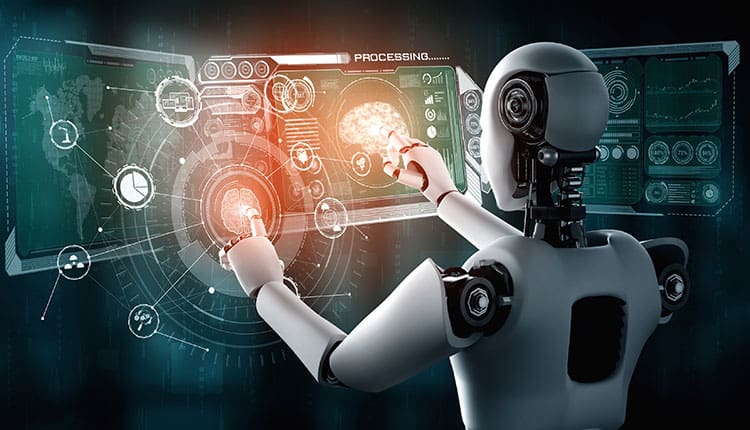In the rapidly evolving world of manufacturing, the integration of AI for manufacturing safety is transforming industry standards. As industries aim to enhance productivity and ensure worker safety, AI technologies are playing a pivotal role. This article delves into how AI is reshaping manufacturing safety and why it is essential for modern industries.

The Role of AI in Modern Manufacturing
With the advent of Industry 4.0, the manufacturing sector is witnessing a paradigm shift. Traditional methods are giving way to automated, AI-driven processes that enhance efficiency and safety. The primary goal is to minimize human error and ensure a safer work environment.
What is AI in Manufacturing?
Artificial Intelligence in manufacturing involves using algorithms and machine learning to optimize operations, predict maintenance needs, and manage quality control. By integrating AI, manufacturers can create smarter, more efficient systems that reduce risks and enhance safety.
Benefits of AI for Manufacturing Safety
Implementing AI in manufacturing not only improves productivity but also significantly enhances safety measures. Here are some key benefits:
Predictive Maintenance
AI systems can analyze data from machinery to predict potential failures before they occur. This proactive approach reduces downtime and prevents accidents, ensuring a safer workplace.
Real-Time Monitoring
AI-powered sensors and cameras provide real-time monitoring of manufacturing processes, enabling quick response to any irregularities or potential hazards. This continuous surveillance ensures that safety protocols are adhered to at all times.
Enhanced Worker Safety
AI technologies can be used to design safer work environments. For example, AI can analyze worker movements and provide feedback on ergonomic practices, reducing the risk of injuries.
AI Technologies Transforming Manufacturing Safety
Several AI technologies are making significant impacts on manufacturing safety. These include:
Machine Learning and Predictive Analytics
Machine learning algorithms analyze historical data to predict future events. In manufacturing, this means identifying patterns that could indicate potential safety issues before they arise.
Robotics and Automation
Robots equipped with AI can perform dangerous tasks, reducing the need for human intervention in hazardous environments. Automation also ensures consistency and precision, which are crucial for maintaining safety standards.
Computer Vision
AI-driven computer vision systems can detect defects in products and monitor manufacturing processes for safety compliance. This technology enhances quality control and reduces the likelihood of accidents.
Neural Networks for Quality Control
Challenges and Considerations
While AI offers numerous benefits, its implementation in manufacturing is not without challenges. Key considerations include:
Data Security
With increased connectivity comes the risk of cyber threats. Manufacturers must ensure robust data security measures are in place to protect sensitive information.
Integration with Existing Systems
Integrating AI technologies with legacy systems can be complex. It requires careful planning and execution to ensure seamless operation without disrupting current processes.
The Future of AI in Manufacturing Safety
The potential of AI in manufacturing safety is immense. As AI technologies continue to evolve, they will offer even more innovative solutions for enhancing safety standards. The future holds exciting possibilities for safer, more efficient manufacturing environments.
Learn more about AI in Manufacturing
Conclusion
As industries strive for excellence, integrating AI for manufacturing safety is no longer optional; it’s imperative. By embracing AI, manufacturers can create safer work environments, boost productivity, and maintain competitive edges in the market. The journey towards safer manufacturing through AI is just beginning, promising a future where technology and safety go hand in hand.

FAQ
How does AI improve manufacturing safety?
AI improves manufacturing safety by providing predictive maintenance, real-time monitoring, and enhanced worker safety through technologies like machine learning and robotics.
What are the challenges of implementing AI in manufacturing?
The challenges include data security, integration with existing systems, and the need for skilled personnel to manage AI technologies.
What is the future of AI in manufacturing?
The future of AI in manufacturing is promising, with continued advancements expected to enhance safety, efficiency, and quality control.
This article contains affiliate links. We may earn a commission at no extra cost to you.

